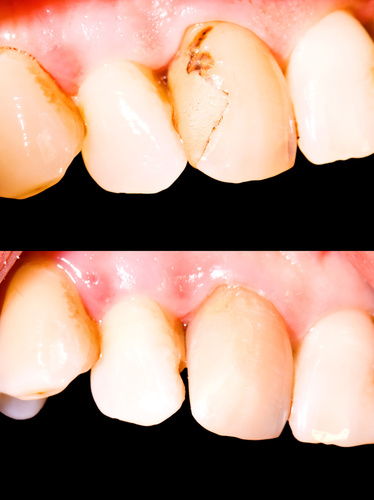It seems bizarre that in this day and age, with all of our dental expertise, people are still suffering from tooth decay, which is no fun, and can be painful as well as embarrassing. However, tooth decay is avoidable in everyone. Preventive measures can be taken even by those who are extremely vulnerable to tooth decay, and considerably reduce the likelihood of having dental complications.
Having specialized tooth-cleaning sessions, as well as regular oral examinations, can help prevent cavity problems, or at least detect them earlier on. Your dentist can propose a timetable that is perfect for your requirements. Brushing twice a day keeps the drilling away!! So brush your teeth no less than two times per day, and if do-able, after each mealtime with fluoride toothpaste. When you are unable to brush right after a meal, you should at least try to rinse the mouth area through with tap water.
Your dentist might suggest that you make use of a mouthrinse that contains fluoride if you are at high risk of developing cavities. Most bottled water does not contain fluoride, so when you drink only water in bottles you may will lose out on the benefits of fluoride if it is in your water supply. Make sure to drink tap water which contains fluoride if it is available in your locality. This free water resource helps reduce cavities quite significantly.
Due to ongoing medical concerns, if you are intensely prone to tooth wear and tear, for instance, your dentist might recommend special anti-bacterial mouth rinses or other special cares that can help cut unwelcome bacteria inside your mouth.
To favorably lower the risks of getting cavities, floss frequently and correctly. With subtle movements, use floss around the base of each tooth, including beneath the gum line. Your gum tissues are delicate, so avoid snapping or forcing the floss, which might wound or injure them. For most effective results, nylon (or multifilament) and PTFE (monofilament) types of floss are recommended.
It is advisable these days to choose a defensive plastic masking called “dental dealer”, or “fissure sealant”, which the dentist applies to the chewing surface, mainly on the molar teeth. They seal over channels and cracks, that often gather food against the teeth, thus causing cavities. Tooth enamel is shielded from acid and plaque by the sealant. This sealing method could help people of all age groups, but especially children and adolescents. Plastic sealants are highly recommended for school kids to prevent cavities from age six onwards. These sealants can last up to ten years before they are swapped. Nevertheless, they must be tested often to ensure they are unbroken.
For observable reasons, many foods and drinks are considerably healthier for the teeth than others. Therefore, you should make sure you stay clear of munchies like candy, chips or cookies, which get trapped in hollows and depths of the teeth for prolonged intervals. Try instead to consume food which protects the teeth against cavities. Research has shown that foods like cheese might even help stop cavities, as well as vegetables and fruits, by improving saliva flow in the mouth. Sugar-free gum, coffee and unsweetened tea can help to remove food substances by flushing them out.

